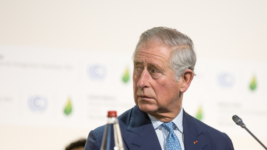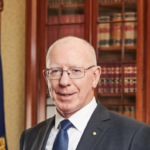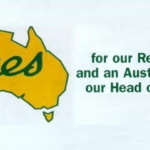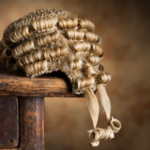King Charles III: Why Is This Man the Australian Head of State?

Australian governor general David Hurley proclaimed Charles Philip Arthur George, or King Charles III, the nation’s head of state at Parliament House in Canberra on Sunday.
Steeped in the pomp and ceremony of an empire now thoroughly decayed, the proceedings followed a meeting of the federal executive council, which is a body made up of government ministers and the governor general.
The death of Queen Elizabeth II and the ascension of Charles III to the position of King of Australia has a lot of people in this country dumbfounded as to what’s transpiring in terms of a national day of mourning declared, and federal parliament closing for two weeks.
Indeed, the absurdity of the nation continuing on with its links to the British royal family, with a local representative of the Crown performing the function of head of state on their behalf, was laid bare when it was revealed that Hurley and former PM Scott Morrison had conspired to dupe the nation.
And rather than preparing Australia for a new royal head of state, with no real connection to one of the most multicultural nations on Earth, the nation should be discussing the prime opportunity the Queen’s death has presented in terms of cutting ties with Rule Britannia.
“Nothing will save the governor general”
In the local setting, the timing of the Queen’s death, directly following the Morrison ministries scandal serves to highlight that our status as a constitutional monarchy is antiquated, and its ceremonial flourishes now convey an element of the ridiculous, rather than adding any gravity.
As was recently exposed, Morrison had the governor general secretly appoint him as the joint administrator of five other ministries.
The public and parliament were left in the dark about this, and while the GG says he didn’t know it was a deceit, he failed to officially diarise the appointments as per protocol.
The pair were able to carry out this deception without breaking the law though, as the Australian system of government relies upon a series of conventions that aren’t set out in law, which means they depend upon the good faith of officials to exercise these powers in the correct manner.
And it’s how these official trimmings are now operating – with the governor general representing the British Crown and holding the ability to sack the prime minister, yet still bound to serve them, and in the case of Hurley, unquestioningly so – that reveal the system is failing and outdated.
Towards a republic
“In Queen Elizabeth’s own words, that grief is the price we pay for love, is I think a fitting statement on how so many Australians are feeling at this time,” said prime minister Anthony Albanese during Sunday’s ceremony.
Yet, the PM might have read the room a little better as a great deal of locals are in shock to find that the as-we-are-led-to-believe purely ceremonial figure of the Queen, and now the King, as well as the GG, do actually play a leading role in terms of where power is vested in this country.
As Albanese took over the top role, he made the bold pledge that if his government is re-elected into office at the next election, he will be holding a referendum on whether Australia should become a republic.
But the Queen’s death has presented Australia with a perfect opportunity to make the break sooner rather than later, especially as a great deal of the older population did have a strong bond with the Queen, yet this isn’t the case with King Charles III.
The link to the British Crown is a relic of the colonial past. And if Australia really wants to heal in terms of its genocide upon First Nations, the perfect way to do this would be to break with the Crown, forgo the purely ceremonial Voice and establish treaties recognising Indigenous sovereignty.







